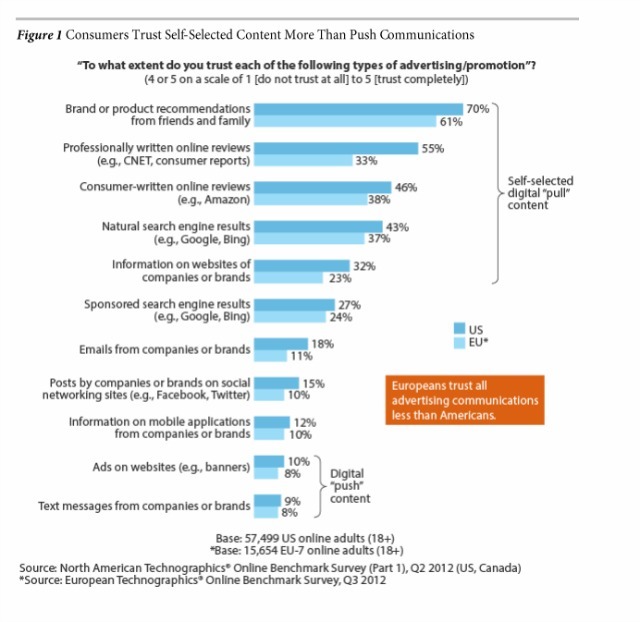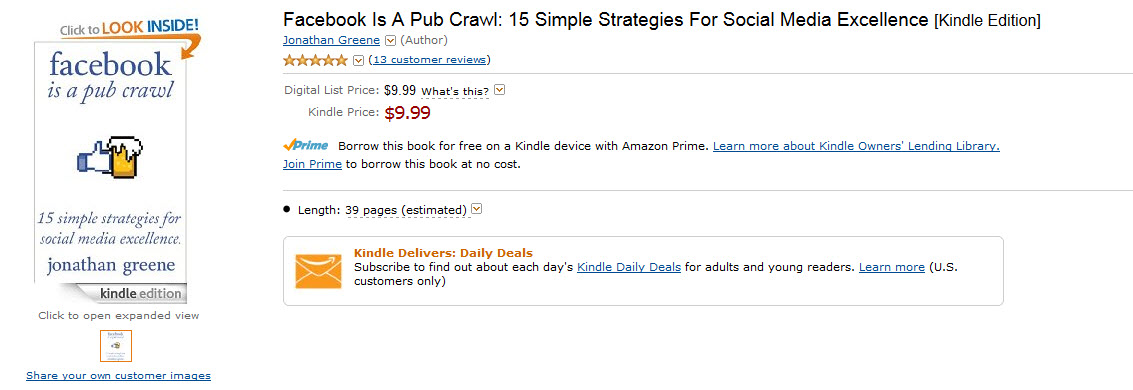Is Social Media Better for Building Product Credibility?
I had a conundrum once at dinner when I was a young military guy stationed in Tampa, Fla.
I wanted to try something new, and I had my mind set on Chinese food. In an attempt to get an unbiased opinion, I fired up my trusty laptop and Googled “Chinese food Tampa.”
After sorting through a few million results, I arrived at a few good recommendations based on star ratings and other such nonsense. Just to double check, I phoned a friend who had eaten at the spot I chose.
Knowing my personality and my legendary picky eating habits, he recommended that I not go to my top choice. Of course, I completely ignored him and did it anyway.
Gripped in the depths of gastrointestinal distress two hours later, and surrounded by throngs of hipsters, I realized a simple truth: star ratings are a ridiculous way to gauge a product or service.
As it turns out, most Americans agree with me, at least in principle.
A recent report from Forrester Research indicated 70% of Americans trust brand or product recommendations from friends and family. To give you an idea of how high that percentage is, only 46% of Americans said they trusted consumer-written online reviews.
The takeaway from this research is Americans trust personal recommendations at a much higher rate than reviews from strangers.
That creates an interesting dichotomy since most e-commerce stores offer consumer ratings, but not friend and family recommendations via social media.
Take a look at this product page. It just so happens to be the Amazon product page for my recently published book.
You’ll notice the product page offers a star-based review system whereby people who have read the book are able to review it.
This represents the traditional attempt by retailers to reduce customer anxiety about their purchase and increase credibility of the product by allowing real people to give their unfettered opinions of the product. The problem, of course, is the Forrester report has introduced an element of doubt about how effective consumer-written online reviews are at influencing the purchasing behavior of individuals shopping online.
Let’s compare Amazon’s attempt to assuage anxiety to another approach, below:
I really like this example of integrating a Facebook comment into a product page because it illustrates the potential for using social media to build your products’ credibility. The widget will allow anyone to comment on your product or service, provided they have a Facebook account.
The widget can be coded to display socially relevant results first. In other words, you can show any comments from your customers’ friends and relatives at the top of the list, and as we’ve discovered, the recommendations of friends can be much more trustworthy.
The only problem I can foresee with this approach is having a lack of comments on a particular product.
Could the Facebook commenting process be so foreign to people that it scares them away?
Do customers understand this is the functionality that they should use to leave a recommendation?
We don’t have answers to those questions.
It seems as if we’re left with a valid research question: which attempt at alleviating anxiety and boosting credibility will be most effective?
Will it be the traditional user-based “star” concept that made me sick, or the socially empowered “friends and family” approach?
Related Resources:
Social Media: 4 simple steps to calculate social media ROI
Social Media Marketing: 4 questions to ask yourself about social media buttons
Social Media Marketing: Which type of content is appropriate for different platforms?
Categories: Marketing Amazon, customer reviews, Facebook, marketing strategy, online testing, product recommendations, social media












